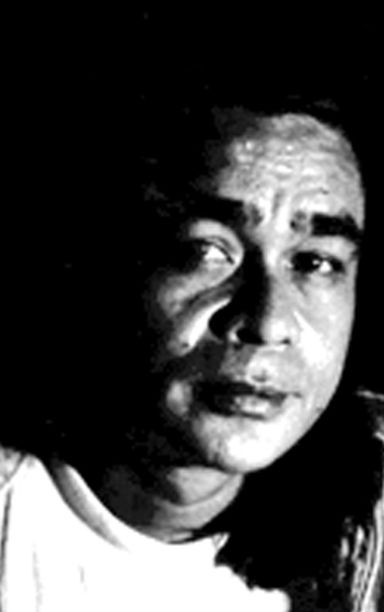
FERNANDEZ
Death is not entirely bad. Death is not the polar opposite of life, it is rooted to it like beginnings to their endings.
And so we see this over and over again, cycles that begin and end. Cycles such as those that define our personal lives.
And see how they overlap, one over another.
They are wave-forms having amplitudes and frequencies that are its characteristics. Such as light, or sound, or history.
I am thinking this, one very early morning, on a long drive with my family.
I am half asleep in the back seat. My oldest son is driving.
His mother, my wife, plays navigator.
And I listen to them talk. It is dark outside.
We are driving to make the crossing back home.
I do not join into the conversation, choosing instead to enjoy the act of spying on my own loved ones, imagining I am not really here. This act brings me to a remembrance of my own late father, Venancio.
Who, like me, was always the designated driver. Back when I was only a young son much younger than my oldest son is now. I was, once, too young to drive.
And now, I am relishing a particular arch of a single wave, this cycle.
We took trips like this. I remember being seated this way, on the back of the my father’s Jeep, watching, listening, and contemplating the road disappearing behind me; and, inevitably, appearing up front. A cycle of life, this.
And truly, everything, in its own time. For one always imagines the myth of permanence. But it is only myth. Nothing stays: Not the good things, certainly; But consequently and thankfully also, never the bad. Nothing stays: Not the most transitory Utopia, certainly; But consequently and thankfully also, never tyranny. And we may as well read up once again on history and see how long were the reigns of tyrants over time. Let’s read up on the Caesars, Nero, and Caligula.
And closer to our time: Stalin, Hitler, Nixon, Pol Pot, Marcos.
They all seemed so powerful in their time we could not possibly imagine how they could fall.
But as history would have it, despotic reigns climb slowly to a peak and then quite suddenly die.
Tyranny has a half-life. It is exactly like a wave that is not always constrained to a lateral symmetry.
The peak of the wave, if we assume this to be its half-life, leads usually to a sudden dip and fall. And, for all we know, we may well be beyond the half-life of this one.
There is a smell in the air.
The signs and symbols are rife, and everywhere. And think of the vain consequences of all these.
How many tens of thousands dead? And was the intended goal worth even a single one of them?
There is a painting, I think by Brueghel, of Icarus falling into the sea. He is only a tiny figure falling into the sea in the far distance.
In this painting, he is only an appendage, a small footnote in a larger universe transpiring on its own logic.
The painting is of the landscape. It is neither of Icarus falling nor of the ploughman in the foreground ploughing the field, though the latter occupies the more important part of the picture plane.
The painting is telling us there is something bigger than each of us. We are all, even our tyrants, mere travellers on this cyclical road.
We are all of equal unimportance.